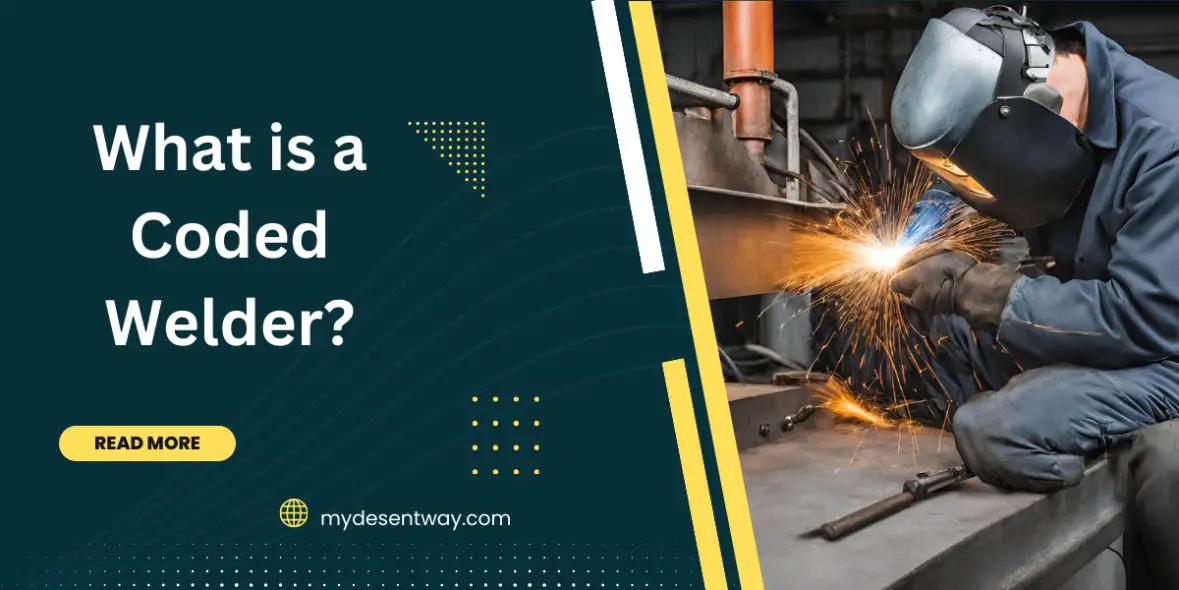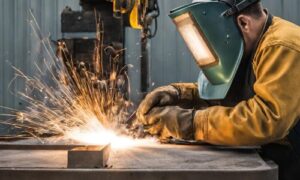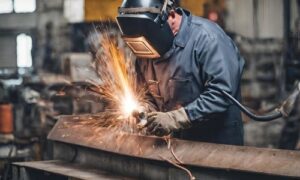Table of Contents
In the world of welding, there’s a term that often comes up in discussions about skilled professionals: “What is a Coded Welder.” But what exactly does this term mean, and why is it significant in the welding industry? In this article, we will delve into the world of coded welders, exploring their qualifications, roles, and the importance they hold in ensuring the integrity of welded structures.
1. Defining a Coded Welder
To start, let’s define what a coded welder is. A coded welder is a highly skilled and certified welder who has undergone specific training and testing to earn their “welding code” certification. This certification ensures that they meet the required standards for performing welding tasks on various materials and in different applications.
2. Welding Codes and Standards
Welding codes are a set of guidelines and standards established by organizations such as the American Welding Society (AWS) and the International Organization for Standardization (ISO). These codes outline the acceptable methods and techniques for welding specific materials, ensuring that the resulting welds are strong, durable, and safe.
Becoming a Coded Welder
3. Training and Education
To become a coded welder, individuals must first undergo comprehensive training in welding techniques. This training typically includes coursework on welding theory, safety practices, and hands-on welding experience.
4. Certification Tests
Once the initial training is complete, aspiring coded welders must pass rigorous certification tests. These tests evaluate their welding skills, ensuring they can produce high-quality welds that meet industry standards.
Importance in Industry
5. Ensuring Quality
Coded welders play a vital role in the welding industry by ensuring the quality of welded joints. Their certifications are a guarantee that they possess the skills and knowledge necessary to create strong and reliable welds.
6. Meeting Regulatory Requirements
Many industries, such as construction and aerospace, have strict regulations governing the quality of welds in their products. Employing coded welders helps companies meet these regulatory requirements and avoid costly mistakes.
Types of Codes
7. Material-Specific Codes
There are welding codes tailored to specific materials, such as steel, aluminum, and titanium. Coded welders often specialize in one or more of these materials to meet industry demands.
8. Industry-Specific Codes
Certain industries have their own unique welding codes and standards. For example, the oil and gas industry has specific requirements for pipeline welders.
Career Opportunities
9. The Versatility of a Coded Welder
Coded welders are not limited to a single type of welding; they often have certifications in various welding processes, including:
– MIG Welding (Metal Inert Gas): Ideal for welding steel and aluminum, MIG welding is known for its speed and ease of use.
– TIG Welding (Tungsten Inert Gas): TIG welding is commonly used for precise and high-quality welds on materials like stainless steel and titanium.
– Stick Welding (SMAW – Shielded Metal Arc Welding): This versatile method is suitable for a wide range of materials and is often used in construction and repair work.
10. Job Security
Due to their specialized knowledge and certification, coded welders often enjoy greater job security and higher earning potential compared to non-certified welders.
The Future of Coded Welding
11. Advancements in Technology
As technology advances, the role of coded welders may evolve. They may need to adapt to new welding techniques and equipment to remain at the forefront of their field.
12. Continued Training
To maintain their certification, coded welders must undergo periodic re-certification tests and stay updated on industry developments.
Conclusion
In conclusion, a coded welder is a highly skilled and certified professional who plays a crucial role in ensuring the quality and safety of welded structures. Their training, certification, and dedication to meeting industry standards make them valuable assets in various industries. As welding technology continues to advance, coded welders will remain at the forefront of the welding profession, ensuring that the world’s structures and products are built to last.
FAQ about what is a coded welder
What is the typical duration required to become a certified coded welder?
Becoming a certified coded welder typically involves a variable timeframe, influenced by individual progress and the specific training program pursued. On average, attaining this certification often demands several years of dedicated education and practical experience.
Can a coded welder work with any type of material?
Coded welders often specialize in specific materials, such as steel or aluminum. They undergo training and certification for the materials they intend to work with, ensuring expertise in those areas.
Are coded welders in high demand?
Yes, coded welders are in high demand, especially in industries with stringent welding standards. Their expertise is crucial for ensuring the quality and safety of welded structures.
Do code welders need to re-certify regularly?
Yes, coded welders must undergo re-certification at specified intervals to ensure they stay up-to-date with industry standards and techniques.
How can I find a certified coded welder for my project?
You can find certified coded welders through welding certification bodies, industry associations, or by contacting welding companies with experienced professionals on their teams.



